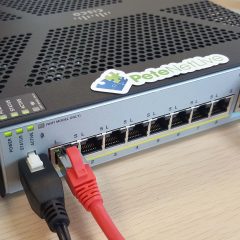Cisco ASA: Mixing TCP and UDP in Object-Groups
KB ID 0001668 Problem I like object-groups, they can make your firewall configs a lot smaller/neater and if you need to add a host, network, range, or port, then you can simply add the new requirement to an existing group. But what if you want to allow both UDP and TCP ports, you can create a service group for TCP and add the ports and a service group for UDP and add the ports, and add them into your ACL where you would expect ports...

